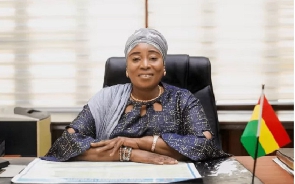The Affirmative Action (Gender Equality) Bill was on Tuesday, March 21, 2023, resubmitted to Cabinet for consideration, Ms Lariba Zuweira Abudu, Minister for Gender, Children and Social Protection says.
She said the resubmission would enable the consideration of the Bill to ensure it was laid before Parliament for approval.
Ms Abudu said on Tuesday on the floor of the House when she responded to a question from Ms Abla Dzifa Gomashie, the NDC Member of Parliament (MP) for Ketu South Constituency.
Ms Gomashie inquired about the Status of the Affirmative Action Bill.
She, therefore, urged the Gender Minister to ensure that the Bill was presented to the House to be accorded the needed parliamentary attention.
Ms Abudu, MP for Walewale on the ticket of the New Patriotic Party during her vetting at the Appointments Commitment of Parliament, said the Affirmative Action Bill was a key bill she would look at when approved as the substantive minister.
She said currently, the citizens needed the bill, and she was very sure President Nana Addo Dankwa Akufo-Addo would be very conversant to leverage the passage, especially when he was a gender champion of the time.
Ghana legislated an Affirmative Action Act in the middle of 1960, which allowed ten women members to represent the regions of the country in the then legislature.
The law recognised that women’s political participation was a critical component of democratic dialogue and social cohesion.
Women’s representation in all policy-making spaces in Ghana stands below the United Nations (UN) threshold of 30 percent.
Currently, women’s representation in Ghana’s Parliament stands at 14.5 percent, while in the District Assembly System, below five percent.
The situation is no different in the government’s ministerial, ambassadorial, and board appointments.
The persistent low representation of women in these key decision-making spaces makes it nearly impossible for women’s effective contributions to Ghana’s development.
These extremely low figures are there even though Ghana has signed on to various international protocols and conventions, pledging 30 to 40 percent representation of women.
General News of Wednesday, 29 March 2023
Source: GNA

















